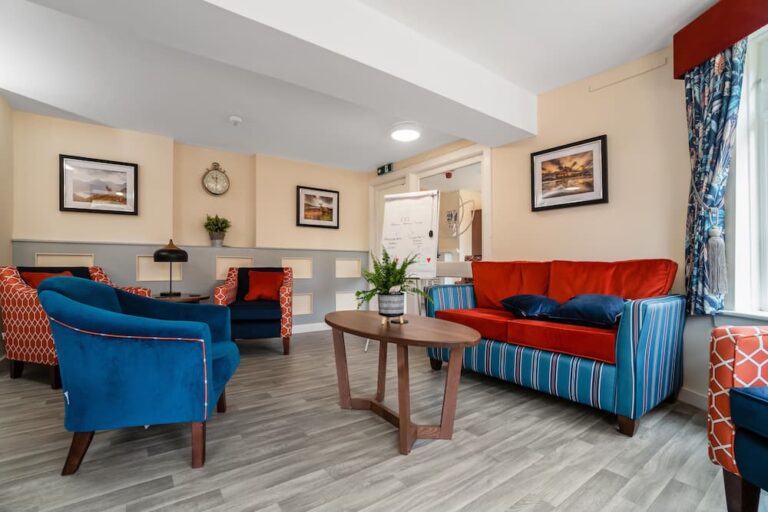As you are probably aware, depression is not a straightforward illness and the symptoms commonly associated with depression can stem from a variety of specific depressive disorders.
One such form is reactive depression, and so it is important to be aware of reactive depression symptoms so that you can know how to prevent reactive depression’s symptoms going forward and start living a healthier life.
Generally speaking, reactive depression can be described as a form of depression that will present in response to an external issue or stressor that the sufferer has encountered.
The disorder can also be called situational depression, and the side effects that this condition causes can imitate those of a major depressive disorder.
While situational/reactive depression isn’t formally diagnosable as a medical state, these terms are recognised as describing the detrimental psychiatric/psychological impact that a strenuous lifestyle factor can have on a person.
 Get in Touch
Get in Touch
Our admissions team can give you expert help and advice on the best options available for treating reactive depression and addiction, get in touch today to find out more.
Individuals can be seen as exhibiting a wide array of “normal” reactions to generally strenuous situations in their life; however, reactive depression amplifies the emotional reaction to a difficult experience far beyond a standard reaction.
For some people, the symptoms of reactive depression may ease naturally over time as more time passes from the incident which has caused the development of this disorder.
Although, sadly, there are some people for whom the side effects may continue meaning the state develops into a chronic condition more akin to a persistent major depressive episode.
It can be quite hard to diagnose reactive depression due to the various types of depressive episodes that a person can be suffering from, but we’re going to be looking through some of the specifics of this illness and how it can be treated which will hopefully help you if you feel that you may be suffering from this disorder.
And, if you do believe this to be the case and feel that you need more help overcoming this issue, then Nova Recovery’s team of experts will be able to help you if you contact us on 01475 303998.
Symptoms Of Reactive Depression
The symptoms of reactive depression, as with most depressive disorders, can vary from person to person in terms of severity and duration. As alluded to previously, reactive depression can massively intensify the magnitude of life events, with the stress caused by this having the ability to negatively impact all areas of a person’s life.
Some of the most commonly described side effects that reactive depression may bring about include such specific symptoms as:
- Loss of enjoyment in everyday activities and/or activities that once brought you joy.
- Frequent bouts of crying, with these bouts, often beginning inexplicably.
- Feelings of hopelessness.
- Consistent periods of worrying and/or feeling anxious/stressed out.
- Difficulty sticking to a routine and/or fulfilling day-to-day tasks.
- Loss of appetite.
- Not attending any forms of social engagements.
- Suicide ideation.
- Insomnia and/or difficulty sticking to a regular sleeping pattern.
- Experiencing periods of feeling generally overwhelmed by the world around you.


Scotland Based Mental Health & Addiction Treatment Providers
Key offerings available include:
- Drug and Alcohol Rehab in Scotland
- 1:1 Support from Clinical Nurse Practitioners, Registered Mental Health Nurses and Therapists
- Access to Trained Psychiatrists
- 24-Hour Nursing Care
- Comfortable & Quality Accommodation
- Clinically Led Recovery Model Underpinned by Cognitive Behavioural Therapy (CBT)
- 1 Year Aftercare
So what are you waiting for?
Begin your journeySituation Causes Of Reactive Depression
All manner of stressful life events can lead to the development of a reactive depressive disorder, be those life events positive or negative in nature.
Some life events/changes that may lead to reactive depression can include such situational factors as:
- Changes to your physical environment, such as moving away from home for the first time, having a baby, or retiring from work.
- Problems in your romantic relationship/marriage such as frequent fighting or divorce.
- Living in a dangerous and/or stressful neighbourhood where you struggle to feel safe in your own home.
- A sudden diagnosis of a medical illness, be it yourself or a loved one.
- Bereavement.
- Life-or-death situations, such as experiencing a physical assault, military combat, or even a natural disaster.
- Financial instability or difficulties in your work life.
Traumatic Causes of Reactive Depression
It is also possible that traumas that you experienced in the past are to blame for you experiencing a reactive depressive episode, with such factors including the likes of:
- Experiencing an abusive and/or stressful childhood.
- Previous mental health illnesses manifesting once more.
- You may also have been experiencing a series of life-altering experiences over an extended period of time, all leading up to one final change being the trigger for the development of your reactive depression.
Biological Causes of Reactive Depression
Finally, there are also many studies that suggest that there may be a biological explanation for a person manifesting a reactive depressive disorder. These biological factors can include:
- Genetic factors may be a contributing factor, as there is evidence to show that individuals who have close family members suffering from a depressive disorder are more likely to develop a similar disorder themselves.
- Hormone imbalances in your brain.
- Physical alterations in your brain chemistry and/or biology.
Types Of Treatment For Reactive Depression
If you feel that you are exhibiting any of the symptoms of reactive depression then you should consider consulting a medical professional who specialises in this area, such as the specialists at Nova Recovery. We offer dual-diagnosis treatment for people who have severe drug or alcohol addiction as well as depression.
With professional help, it is possible to alleviate the symptoms of this disorder and start living life as you did before the manifestation of this illness. One of the main forms of treatment that you may experience is psychotherapy/counselling treatments.
One-to-one and group counselling under the supervision of a licensed therapist/psychiatrist are some very common forms of treatment that hospitals may encourage you to engage with. More specifically, Cognitive behavioural therapy (CBT), and Talking Therapy have some of the most proven success when it comes to treating depressive disorders.
The reasons that these therapies are so successful are that they allow an individual to beer understand their condition, and by finding the root cause of their condition they can learn how to respond more positively to negative triggers in the future.
For a lot of treatments for reactive depression, the specific therapies that you experience will often depend on the severity of your depressive episode, the ways in which this episode has manifested, and what lifestyle factors your doctors may believe have led to the development of this disorder.
Reactive depression, as with many depressive disorders, is a very personal illness and so an individual will often benefit from treatment that is centralised on their personal issues. This is something that Nova Recovery, in our Scottish rehab facility, particularly excels at with our dual diagnosis programmes.
John Gillen
- Author
- Last updated: July 10, 2023
John has travelled extensively around the world, culminating in 19 years’ experience looking at different models. He is the European pioneer of NAD+ (Nicotinamide Adenine Dinucleotide) treatment to Europe in 2010; and recently back from the USA bringing state of the art Virtual Reality Relapse Prevention and stress reduction therapy. His passion extends to other metabolic disturbances and neurodegenerative diseases. The journey continues. In recent times, John has travelled to Russia to study and research into a new therapy photobiomudulation or systemic laser therapy working with NAD+ scientists and the very best of the medical professionals in the UK and the USA, together with Nadcell, Bionad Hospitals own select Doctors, nurses, dieticians and therapists. Johns’ passion continues to endeavour to bring to the UK and Europe new developments with NAD+ Therapy in preventive and restorative medicine and Wellness. In 2017 John Gillen was made a visiting Professor at the John Naisbitt university in Belgrade Serbia.






